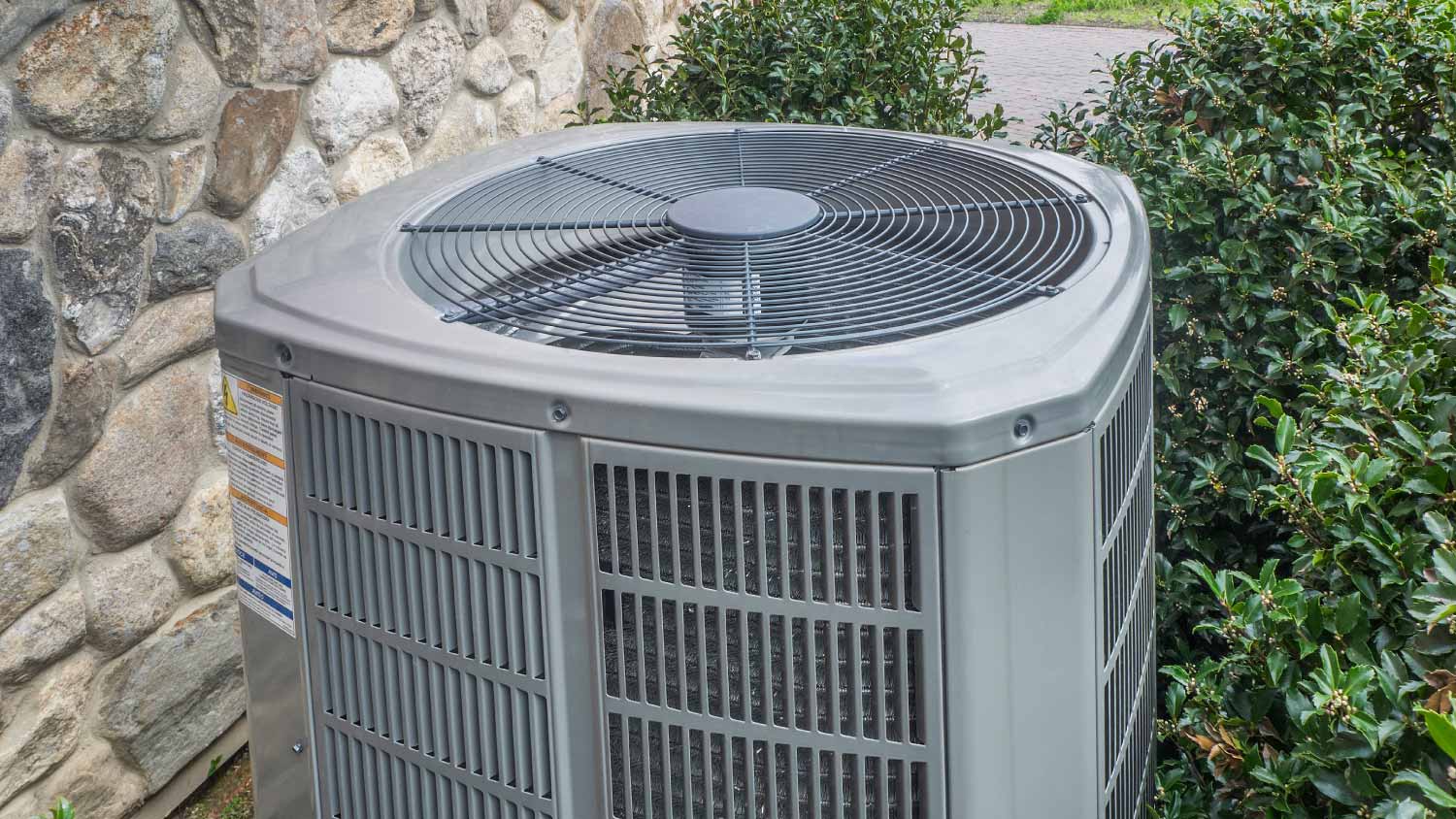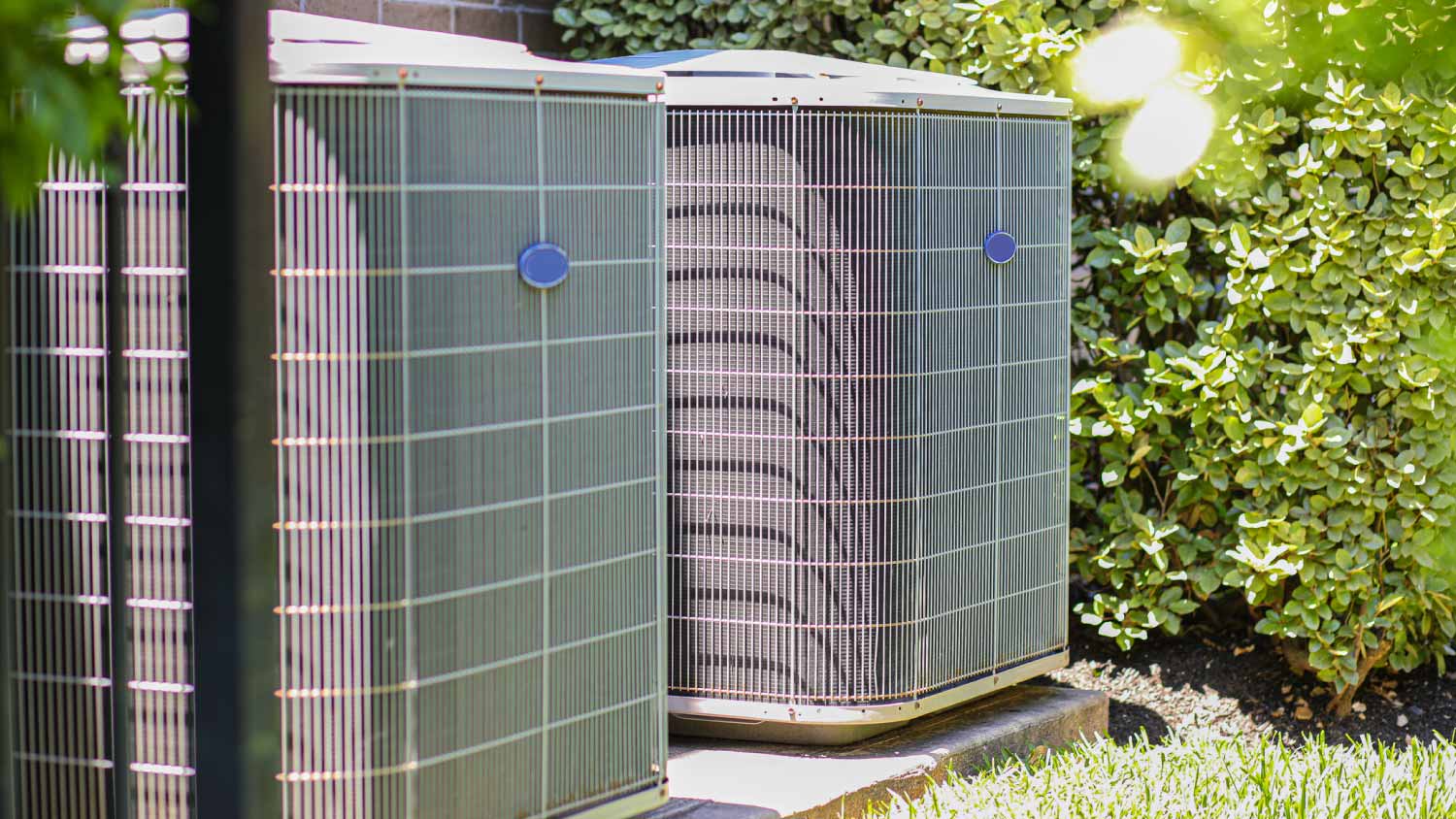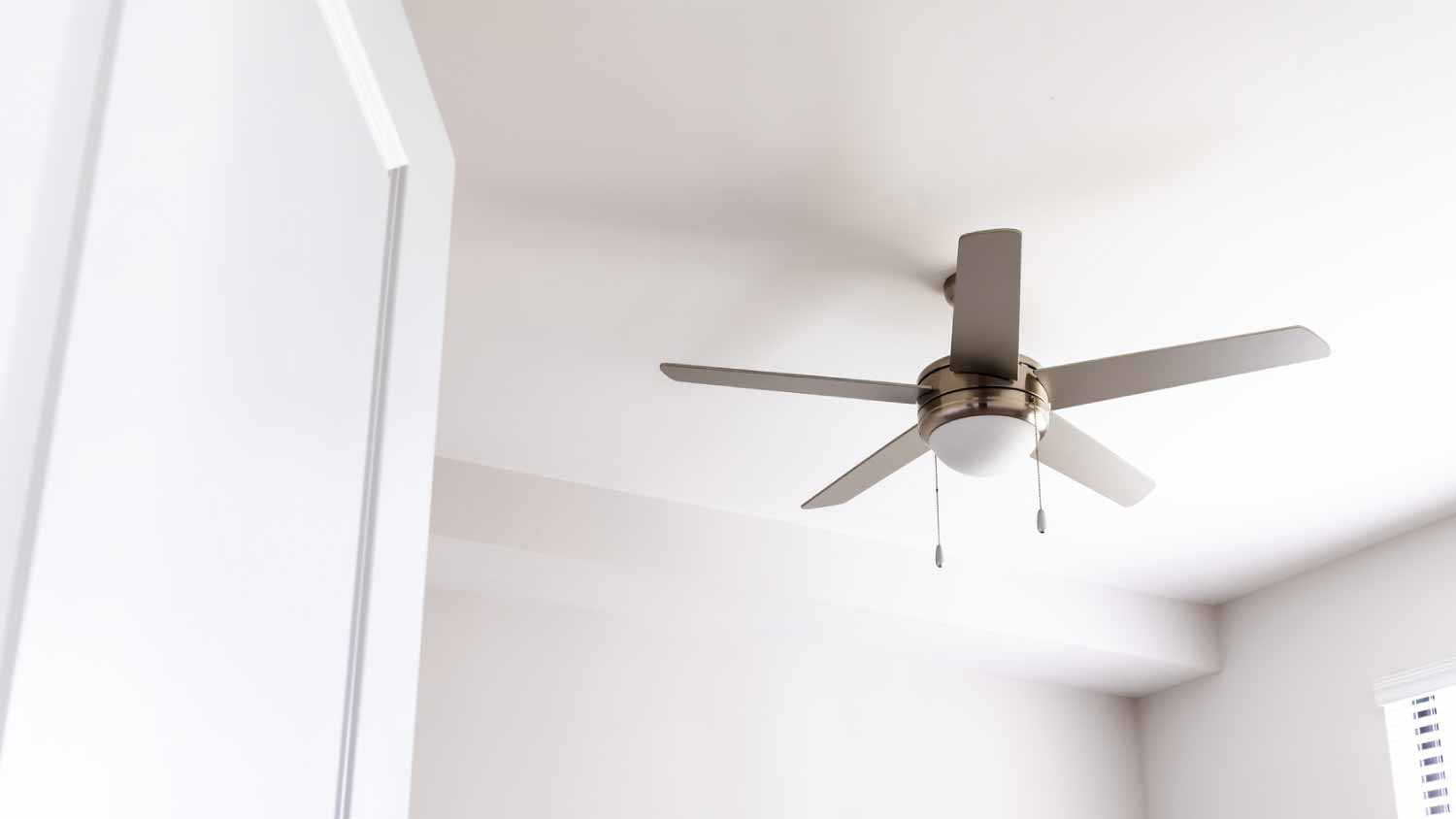Single-Stage HVAC vs. Two-Stage HVAC: Key Differences
Which one will help you keep your cool?


A two-stage HVAC system is quieter and more efficient but costs more up front.
Single-stage HVAC systems are less expensive and may make sense if you live in a smaller home.
A two-stage HVAC unit may be worth the extra cost if your primary concerns are efficiency and indoor air quality.
If you’re looking for a longer-lasting unit with higher-quality parts, a two-stage HVAC unit is likely your best bet.
If you’re in the market to upgrade your cooling system, you’ll likely come across single-stage and two-stage HVAC systems. So, how do you know which one to choose? Factors like your budget, the size of your home, and your particular cooling needs can help you zero in on the ideal option for your unique situation. To help you with your decision, we’ve compared single-stage HVAC units to their two-stage counterparts below.
What Is a Single-Stage HVAC System?

A single-stage HVAC system is the most common type of air conditioner available, and it has only one mode or speed. Once you install a single-stage HVAC unit, you can expect it to continually turn on or off throughout the day, depending on the temperature outside. It will run at full blast or 100% capacity until it reaches the desired temperature.
| Pros | Cons |
|---|---|
| Lower up-front cost | Less efficient |
| Faster to install | Can be noisy |
| Less costly to repair | May need to be replaced sooner |
Best for:
Smaller homes
Homeowners who are on a budget
Those who are less concerned about efficiency and noise
What Is a Two-Stage HVAC System?

A two-stage HVAC system operates on two modes or speeds: high and low. It will kick into high gear if your home is much warmer than the temperature outside. If the temperature in your home is similar to the temperature outside, however, it will run at a low speed. In most cases, a two-stage HVAC system spends the majority of its time on the lower setting, only running at 60% or 70% capacity.
| Pros | Cons |
|---|---|
| More energy efficient | More expensive up-front cost |
| Better temperature control | Longer, more complex installation |
| Quieter | Higher repair costs |
Best for:
Larger homes
Homeowners who prioritize energy efficiency
Those who are concerned about air quality and allergies
Single-Stage vs.Two-Stage HVAC Systems Compared
When looking into single-stage versus two-stage HVAC systems, there are a few things to consider before reaching out to a local air conditioner installer. Since this is a long-term investment, you should weigh the pros and cons of each option to determine the best fit for you and your home. Below, we’ll take a look at which system comes out on top for up-front cost, energy efficiency, noise, air quality, and life span.
Up-Front Cost: Single-Stage
The up-front cost of an AC unit is usually a major concern for most homeowners. In this case, a single-stage HVAC system will be less costly than a two-stage one. On average, a two-stage system can run about 30% more, so you could be spending anywhere from $500 to $2,500 up front.
The extra money for a two-stage HVAC may be worth it if you’re looking for a quieter, more efficient one that may lower utility bills–especially if you live in a warmer climate that will get a lot of use out of the system.
Energy Efficiency: Two-Stage
As far as energy efficiency is concerned, a two-stage HVAC system takes the cake. Compared to a single-stage unit that always runs at 100% capacity, a two-stage unit only runs at 60% to 70% capacity. It won’t operate at high speeds unless it really needs to.
Quietest: Two-Stage
At the end of the day, most homeowners appreciate a peaceful, quiet space. If high noise levels are an issue for you, you should know that a two-stage HVAC system is much quieter than its single-stage counterpart. Sometimes, you may even forget it’s running.
Indoor Air Quality: Two-Stage
Air quality is an important consideration if you’d like to keep yourself and your family healthy. Thanks to its improved airflow, a two-stage HVAC system can help prevent dust and other irritants from circulating throughout your home, along with routine air duct cleaning. It’s the best choice if you hope to improve your indoor air quality and keep allergy symptoms to a minimum.
Life Span: Two-Stage
On average, an HVAC unit lasts between 15 to 20 years. Due to their higher quality parts, two-stage HVAC systems tend to last closer to 20 years. This is particularly true if you invest in a unit from a reputable manufacturer and get it serviced on a regular basis.





- Furnace Repair
- Air Conditioning Repair
- HVAC Repairs
- Furnace Installation
- Wood & Pellet Stove Repair
- Dehumidifier & Humidifier Repair
- Heat Pump Companies
- Swamp Cooler Repair
- Wood Stove Services
- HVAC Companies
- Commercial A/C Repair
- Geothermal Installation
- Air Conditioning Installation
- Boiler Repair
- 24 Hour Furnace Repair
- Geothermal Repair
- Heat Pump Repair
- Humidifier Installation
- Thermostat Repair
- Thermostat Installation
- Nest Installation
- Heating & Cooling
- Heating Repair
- Furnace Cleaning
- Furnace Tune-Up
- HVAC Technicians
- Subcontractors
- Furnace Maintenance
- Plumbing & Heating Companies
- Wood Stove Inspection
- Mini Split Installation
- Wall Heater Repair
- Duct Installers










